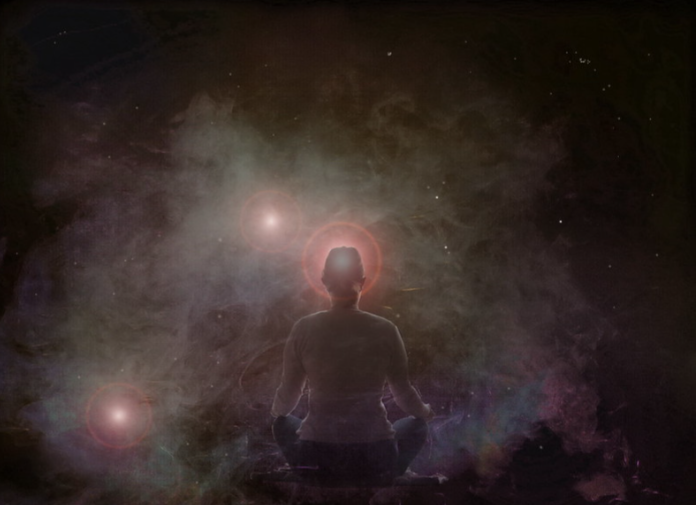Before we understand cosmic consciousness, let’s first define what consciousness is. Consciousness, at its core, is the ability to think, perceive, and be aware of one’s surroundings. It’s what allows us to reflect on our existence, ask deep questions, and connect with the world around us. The ability to think beyond our physical presence is an extraordinary gift from nature. We are not merely bodies experiencing the world, but also minds capable of envisioning realms beyond our immediate physical surroundings.

However, the idea that only humans or living beings on Earth possess consciousness is a limited view.
There are trillions of stars and billions of galaxies, each part of a vast and intricate universe. To think that consciousness exists solely in human beings is not only narrow-minded but also lacks the humility required to understand the greater mysteries of the cosmos. According to Buddhism and other spiritual traditions, everything is made up of consciousness. Every atom, every particle, and every celestial body is thought to be imbued with a kind of awareness. This universal awareness is what is referred to as cosmic consciousness.
Cosmic Consciousness: Beyond Individuality
Cosmic consciousness suggests that the universe itself is alive, interconnected, and self-aware. It goes beyond individual consciousness (our personal ability to think and be aware) to propose that the entire cosmos operates as a single, unified field of consciousness. This concept invites us to think of consciousness not as something restricted to biological beings but as a fundamental aspect of the universe itself.
In ancient Indian philosophy, this is mirrored by the concept of Brahman, the ultimate reality that is infinite, eternal, and all-encompassing. Similarly, the Tao in Taoism refers to the underlying, ineffable force that drives the universe. In both cases, the universe is seen as a conscious, living entity.
How Cosmic Consciousness Connects Us
The idea of cosmic consciousness is not just theoretical—it is deeply practical for many spiritual practitioners. Through meditation, yoga, and other contemplative practices, individuals have reported transcending their own personal sense of self and tapping into a larger, universal consciousness. These moments of deep connection can feel like being one with the universe, free from the limitations of the ego and the boundaries of time and space.
In this state, people often describe feelings of profound peace, joy, and a sense of being at home in the universe. Many believe that this form of consciousness is the next step in human evolution, where humanity will collectively wake up to its place in the larger cosmic system.
Scientific Perspectives on Cosmic Consciousness
While cosmic consciousness has deep roots in spiritual traditions, it also has intriguing parallels in modern science. Quantum physics, for example, has shown that at the most fundamental level, particles are interconnected in ways that transcend time and space. Some physicists suggest that this deep interconnection could be a sign of a larger, more universal form of consciousness that we are just beginning to understand.
Additionally, some neuroscientists and philosophers are exploring the possibility that consciousness is not merely a byproduct of brain activity but might instead be a fundamental property of the universe—much like space, time, or energy.
Achieving Cosmic Consciousness Through Yoga and Meditation
Practices such as yoga and meditation are known for their ability to expand human consciousness. By calming the mind and detaching from the ego, practitioners can experience a state of unity with all that exists. This is often described as a moment of “cosmic consciousness,” where the boundaries between the self and the universe dissolve, revealing the interconnected nature of all things.
In these states, individuals often feel that they are part of something much larger than themselves. The Vedantic meditation tradition refers to this as achieving oneness with Atman (the individual soul) and Brahman (the cosmic soul). Regular practice of meditation, especially focused on Naam Jap (repetition of a holy name) or deep Pranayama (breathwork), can help individuals quiet the mind and access these higher states of consciousness.

